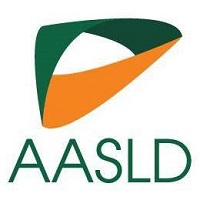 AbbVie’s Viekira Pak (ombitasvir/paritaprevir/ritonavir; dasabuvir) cured 95 percent of people with genotype 1 of hepatitis C virus (HCV) in a large, ongoing study examining the long-term progression of liver disease after a cure. The Phase IIIb TOPAZ-II study is an ongoing, single-arm, open-label trial testing 12 or 24 weeks of Viekira Pak, with or without ribavirin, among 615 treatment-naive and treatment-experienced people with genotype 1. The researchers will follow the participants for five years after they complete treatment to examine the long-term impact of treatment on liver disease.
AbbVie’s Viekira Pak (ombitasvir/paritaprevir/ritonavir; dasabuvir) cured 95 percent of people with genotype 1 of hepatitis C virus (HCV) in a large, ongoing study examining the long-term progression of liver disease after a cure. The Phase IIIb TOPAZ-II study is an ongoing, single-arm, open-label trial testing 12 or 24 weeks of Viekira Pak, with or without ribavirin, among 615 treatment-naive and treatment-experienced people with genotype 1. The researchers will follow the participants for five years after they complete treatment to examine the long-term impact of treatment on liver disease.
Results were presented at the Annual Meeting of the American Association for the Study of Liver Diseases (AASLD) in San Francisco.
Of the participants, 115 (19 percent) have compensated cirrhosis and 500 (81 percent) do not have cirrhosis.
Those who had genotype 1a and all of the participants with compensated cirrhosis took ribavirin in addition to Viekira Pak. Participants received 12 weeks of treatment, unless they had genotype 1a and compensated cirrhosis, in which case they received 24 weeks of treatment.
Ninety-five percent of the participants (586 of 615) achieved a sustained virologic response 12 weeks after completing therapy (SVR12, considered a cure). A total of 0.8 percent of the participants (5 of 615) experienced virologic failure while on treatment, while 1.9 percent (11 of 590) relapsed. One percent of the participants (6 of 615) prematurely discontinued treatment due to adverse side effects. Four percent (25 of 615) had serious side effects.
The most commonly reported adverse side effects, occurring in at least 10 percent of all participants, were fatigue, nausea, headache, itching and insomnia.
To read the AbbVie press release, click here.

Thinkstock (Model(s) used for illustrative purposes only)






1 Comment
1 Comment